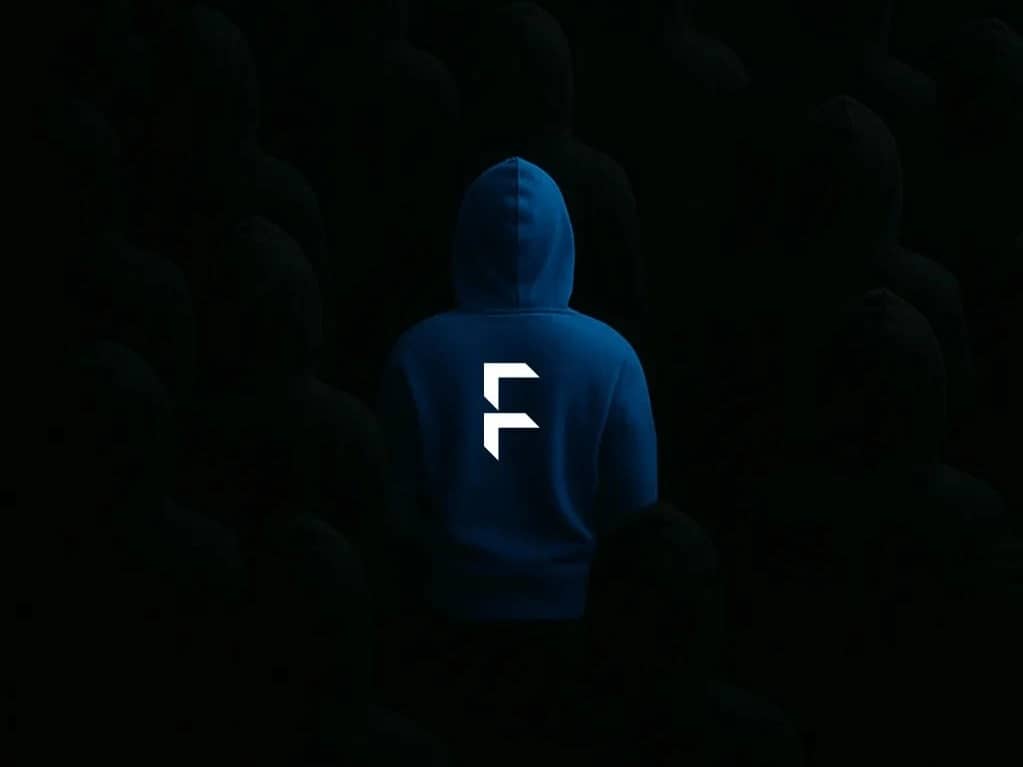订阅 wiki
Share wiki
Bookmark
FLock
0%
FLock
FLock.io 是一个去中心化的人工智能 (AI) 平台,专为保护隐私的协作式 AI 模型训练而设计。它利用联邦学习和区块链技术,使个人和组织能够共同创建 AI 模型,而无需共享其底层私有数据,旨在实现 AI 开发的民主化。 [1] [2]
概述
FLock.io 的开发旨在解决人工智能开发日益集中在少数大型科技公司手中的问题。该项目的使命是通过创建一个开放和协作的生态系统来打破这些“围墙花园”,从而将人工智能的控制权分配给参与者。该平台的核心理念建立在数据主权和用户所有权的原则之上,体现在其口号“不是你的模型,不是你的人工智能”中。通过将机器学习技术与去中心化基础设施相结合,FLock 旨在解决人工智能行业的关键问题,包括数据垄断、模型偏差、缺乏透明度以及与单点故障相关的风险。 [2] [3]
该平台的架构基于两种主要技术。第一种是联邦学习(FL),这是一种机器学习方法,允许在去中心化数据源上训练 AI 模型,而数据永远不会离开其本地环境。这种方法确保敏感或专有信息保持私密,同时仍有助于改进全局模型。第二种是 区块链 层,它为协调任务、管理经济激励和促进去中心化治理提供了可信的 基础。该层构建在 Base 生态系统中,使用智能合约来自动化奖励分配并执行网络规则,从而确保所有参与者的透明度和安全性。该项目位于英国伦敦,由包括牛津大学计算机科学研究人员在内的团队创立。 [8] [4]
历史
该项目的发展路线图概述了构建其平台的阶段性方法。2023年第二季度,团队启动了测试网构建,并推出了用于大型语言模型(LLM)微调的功能。在2023年剩余时间里,开发重点是优化此功能,孵化用例,并完成对零知识证明(ZKP)的研究,以增强安全性。 [3] [4]
2024年,该项目将其重点转移到平台完成和社区参与上。AI Arena作为生态系统的核心组成部分,分别在第二季度和第三季度推出了封闭和开放测试版。联邦学习环境FL联盟也在此期间进入测试阶段。2024年9月,FLock获得了以太坊基金会的学术资助,作为其2024年学术资助计划的一部分,用于资助基于区块链的机器学习激励机制研究。到2024年底,该平台被认为是功能完备的,重点是扩大参与规模并增加模型调用次数。2025年的一个重要里程碑是4月28日宣布的“gmFLOCK”,这是一项旨在增强原生FLOCK代币效用的重大生态系统升级。该机制旨在通过要求用户质押FLOCK以生成gmFLOCK,从而将FLOCK代币从简单的可交易资产转变为“生产性资本”,而gmFLOCK是参与关键网络角色所必需的。该模型旨在通过鼓励长期参与并减少投机性波动,为去中心化AI生态系统创建一个可持续的经济飞轮。该项目的原生代币FLOCK在2025年经历了显著的价格波动,4月7日创下0.03517美元的历史低点,9月9日达到0.6674美元的历史高点。该代币随后于2025年9月12日左右在Upbit 加密货币交易所上市。 [8] [3] [5] [6]
技术和架构
FLock.io的平台构建于一个双层架构之上,该架构将人工智能流程与安全的区块链 基础相结合。 这种结构旨在支持AI模型的创建、改进和部署的多阶段工作流程。 [4]
核心组件
该平台的工作流程分为三个不同的阶段,每个阶段在AI模型生命周期中都发挥着特定的作用:
- AI竞技场:这是一个去中心化的平台,用于机器学习模型的初始训练和验证。当创建一个新任务时,被称为训练节点的参与者会竞争使用公共数据集或他们自己的本地数据来训练模型。另一组参与者,称为验证者,然后评估提交的模型,以达成对其性能的共识,这决定了排名和奖励分配。 [2]
- FL联盟:该组件为在AI竞技场中训练的模型提供联邦学习环境,以保护隐私的方式进行微调。参与者,或FL客户端,使用他们的私有本地数据来协作改进全局模型,而原始数据永远不会离开他们的设备。该系统使用链上可验证随机函数(VRF)来分配“提议者”(训练模型的人)和“投票者”(验证更新的人)的角色,以防止串通。 [4]
- AI市场(或AI月球基地):这是最终的部署阶段,完成的模型托管在此处,开发者和应用程序可以访问这些模型。模型主机部署前几个阶段中获胜的模型,最终用户可以通过API或SDK集成它们。访问通过使用原生FLOCK代币的支付和质押系统进行管理。 [1]
关键技术
该平台的功能由以下专门技术的组合实现:
- 联邦学习 (FL):这是隐私保护的核心技术。它支持跨众多分散设备进行协作模型训练,而无需交换底层数据。仅共享和聚合模型更新,例如梯度或权重,从而确保数据主权。 [2]
- 区块链集成:该平台在 Base 区块链上运行,该区块链为安全透明的协调提供基础设施。它利用权益证明 (PoS) 共识机制来管理链上激励,包括质押和削减惩罚,并通过 DAO 促进去中心化治理。 [4]
- 低秩适应 (LoRA):FLock 采用 LoRA,这是一种允许快速且计算高效地微调大型模型的技术。通过减少贡献于模型改进所需的计算资源,这使得参与更易于访问。 [1]
安全性
该系统旨在减轻去中心化网络中常见的各种潜在攻击。质押要求(参与者必须锁定FLOCK代币)使得女巫攻击(创建多个虚假身份)的成本高昂。奖励系统是基于绩效的,这抑制了搭便车行为,因为没有做出有意义贡献的参与者不会得到补偿。为了防止FL联盟中的模型中毒,模型更新采用多数投票系统,并结合奖惩机制来惩罚和移除恶意客户端。该平台的智能合约已由安全公司Slow Mist审计。 [2] [1]
FLock API 平台
FLock API 平台是一个工具,使开发者能够访问并将 FLock 市场中的 AI 模型集成到他们的应用程序中。它提供无服务器 API 端点,允许轻松集成,且设置最少。该平台旨在与 OpenAI SDK 兼容,以降低熟悉现有 AI 工具的开发者的入门门槛。它采用按使用付费的模式,通过平台管理付款和积分,并与 Moonbase 奖励层集成,以将收入分配回模型贡献者。 [7]
生态系统参与者
FLock生态系统旨在支持各种角色,每个角色都为AI模型生命周期做出贡献。参与大多数关键角色需要质押 FLOCK代币,以确保承诺并将激励措施与网络健康保持一致。 [2]
- 任务创建者:这些是定义AI训练目标并将其作为任务提交到平台的个人或组织。他们需要质押FLOCK代币或拥有良好的声誉才能创建任务。
- 训练节点:AI Arena的参与者,他们使用其计算资源来训练基于任务创建者提供的规范的模型。他们必须质押代币才能参与,并根据其表现获得奖励。
- 验证者:这些参与者负责评估由AI Arena中的训练节点提交的模型。他们的职责是确保模型的质量、准确性和可靠性,然后才能对其进行推进或奖励。验证者也质押代币才能参与。
- FL客户端:FL Alliance的参与者,他们使用其私有的本地数据来微调模型。他们充当提议者(使用其数据训练模型)或投票者(验证提议的更新)。
- 模型托管者:一旦模型经过充分训练和验证,模型托管者就会在AI市场上部署和维护它,从而为最终用户和应用程序提供推理服务。
- 委托者:没有技术能力充当节点或验证者的代币持有者可以将他们的股份委托给活跃的参与者。作为回报,他们可以分享他们支持的参与者产生的奖励。
这些角色共同创建了一个全面且自我维持的去中心化AI开发生态系统。 [4]
代币经济学
FLOCK 代币是 FLock.io 生态系统的原生实用和治理代币。它旨在促进经济活动、保护网络安全并实现社区主导的治理。 [2]
FLOCK 代币
- 代码: FLOCK
- 总供应量: 1,000,000,000 FLOCK (固定)
- 区块链: Base
- 合约地址:
0x5aB3D4c385B400F3aBB49e80DE2fAF6a88A7B691
代币供应量是固定的,新的代币通过计划好的排放过程进入流通,奖励活跃和诚实的网络参与者。 [8]
实用性
FLOCK代币在平台内有几个关键功能,旨在推动需求并确保其在生态系统中的核心作用:
- 质押:所有活跃参与者,包括任务创建者、训练节点和验证者,都需要质押FLOCK代币作为抵押品。这种机制通过确保参与者在诚实行为中拥有经济利益来保护网络。
- 支付:终端用户和开发者使用FLOCK代币支付访问AI市场的AI模型,特别是超出其股份确定的任何免费层级的使用。
- 治理:持有FLOCK代币可在FLock DAO中获得投票权。代币持有者可以对协议升级、资金管理以及影响平台未来的其他关键决策提出建议和投票。
- 赏金:任务创建者可以提供额外的FLOCK代币作为赏金,以激励参与者优先完成其特定的AI训练任务。
- 委托:代币允许持有者将其股份委托给网络运营商,使他们能够在不运行技术基础设施的情况下参与生态系统的奖励系统。
经济模型
该平台的经济模型围绕奖励和惩罚系统构建。每日代币排放分配给贡献参与者,分配比例基于AI竞技场和FL联盟任务中质押的FLOCK总额。为了惩罚恶意行为,平台采用“削减”机制,没收不诚实参与者质押代币的一部分,并重新分配给诚实参与者。这为试图破坏网络的行为创造了强大的经济抑制因素。[2]
使用案例
FLock 的去中心化和保护隐私的框架适用于各种人工智能领域,特别是那些涉及敏感数据或需要社区协作的领域。
- 大型语言模型 (LLM):该平台可用于 LLM 的预训练,利用去中心化计算和多样化数据集,以及用于专门任务的现有模型的微调。其中一个应用是为链上加密货币交易创建 AI 代理,并有可能托管在像 Morpheus 这样的网络上。 [2]
- 稳定扩散模型:FLock 支持社区驱动的文本到图像模型的微调。通过使用像 LoRA 这样的技术,社区可以协作地将独特的艺术风格和偏好融入到共享模型中,而无需集中他们各自的数据集。 [1]
- 医疗保健:该平台的保护隐私特性使其适用于医疗保健等敏感领域的应用。例如,多家医院可以合作使用各自的患者数据来训练糖尿病预测模型。通过联邦学习,可以在不共享原始患者数据的情况下实现这一点,从而确保符合 HIPAA 等法规。与英国一家医院合作的一个试点项目成功地展示了这种用于血糖预测的能力。 [4]
治理
FLock.io平台的治理是通过去中心化自治组织(DAO)进行的,这使得FLOCK代币持有者能够集体管理生态系统。这种结构旨在确保平台的发展和政策与其社区的利益相一致。 [2]
任何质押了指定数量FLOCK的代币持有者都可以提交提案,这一措施旨在防止垃圾信息。然后,社区会在提案进入正式投票前对其进行审查。为了使投票有效,必须有最低数量的代币持有者参与。DAO的权限范围包括技术协议升级、资金管理、社区倡议以及对奖励分配等经济参数的调整。DAO的一个关键功能是任务验证,它可以批准某些AI训练任务,使其有资格获得协议级别的排放奖励。 [4]
合作伙伴和投资者
FLock.io 得到了多家风险投资公司的支持,并与 Web3 和人工智能领域的各个项目建立了合作关系。
投资者
该项目已获得多家知名投资机构的支持,包括:
- 数字货币集团 (DCG)
- Lightspeed Faction
- OKX Ventures
- Volt Capital
- Tagus Capital
- 以太坊基金会
合作
FLock已建立战略合作伙伴关系,以扩展其生态系统并为其用户提供资源:
- Animoca Brands:平台上的任务创建者,使用FLock训练AI模型,以提高GameFi生态系统内的公司间效率。
- Base:FLock构建于其上的区块链生态系统。Base认可FLock在创建去中心化、隐私优先的AI训练基础设施方面的工作。
- Morpheus:FLock为链上交易的Morpheus检索增强生成(RAG)代理做出贡献。
- IO.net:与FLock合作开展“AI证明”计划,旨在使去中心化网络成为AI应用更值得信赖和可扩展的解决方案。
- Akash:使开发人员能够在去中心化云计算市场上部署FLock训练节点和验证器。
- Hyperbolic:为FLock网络提供计算资源,以支持AI模型训练。
- 联合国开发计划署(UNDP):FLock被选为UNDP可持续发展目标(SDG)区块链加速器的AI战略合作伙伴。在此角色中,FLock为试点项目提供指导和技术支持,帮助他们整合联邦学习和去中心化AI,以应对全球发展挑战。 [8]
该项目还与一家隶属于英国大学的英国领先医院进行了旗舰合作,将其技术应用于医疗AI,并与去中心化计算和点对点智能代理网络领域的未具名领导者建立了合作关系。 [1] [4]
发现错误了吗?
